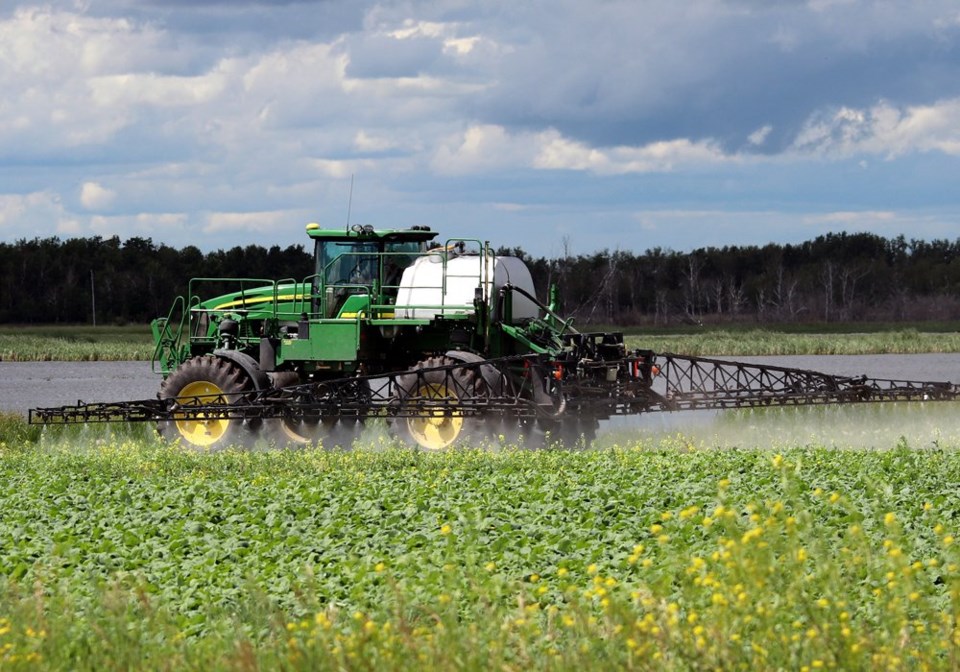WESTERN PRODUCER — It is uncertain what impact a manufacturing problem at Bayer will have on western Canadian supplies of glyphosate this spring.
The world's leading manufacturer of the key crop input .
A major supplier of membrane caustic soda, a key ingredient in the manufacturing of the active ingredient for glyphosate, experienced a mechanical failure in its plant leading to "a substantial reduction in production rates."
The letter states that repairs of the production line are expected to take three months.
However, Bayer Canada spokesperson Trish Jordan indicated in a Feb. 14 email that the supplier experiencing the issue is "making strong progress" in restoring production and Bayer has also taken steps to find alternate suppliers of the ingredient.
"Our business is working very diligently to service the North American marketplaces because of the importance (size, number of customers) of this market," she said.
In addition to manufacturing and selling its Roundup branded glyphosate products, Bayer supplies glyphosate ingredients to other manufacturers who use it to make their own generic private label products.
Jordan said the situation is changing by the hour, so it is hard to determine what, if any, impact the production problem will have on Canadian glyphosate supplies.
But the company did note that the crop chemistry market worldwide is already experiencing "historically tight supply" due to effects of the global pandemic and challenging global trade flows.
Other industry officials have noted that Hurricane Ida and China's energy crisis have also impacted supplies of both glyphosate and glufosinate.
Clark Brenzil, weed control specialist with Saskatchewan Agriculture, said glyphosate is a vital crop input.
"Essentially it's replacing spring tillage," he said.
There is no active ingredient that can replace glyphosate in terms of a broad spectrum, systemic product that is very effective in controlling weeds.
Other products can be used for broad leaf weed control but it would be challenging to find one that handles grassy weeds as effectively.
"That's where glyphosate kind of props the whole system up," said Brenzil.
If there is a shortage of the product come spring farmers will have to consider cutting back on their application rates.
Farmers these days typically apply between 270 and 360 grams of the active ingredient per acre versus the old burn-off standard of 180 grams.
That is because the price of glyphosate plummeted when it came off patent, although it has been climbing back up of late due to the supply issues.
Growers may want to drop their rates as low as 120 to 130 grams, depending on how severe the shortfall is and how high prices rise, said Brenzil. Anything below 180 would require the addition of an adjuvant.
At the lower rates the herbicide will only control annual weeds like wild oats and green foxtail. At the higher rates it also controls perennials like dandelions and quackgrass.
Growers using other grass control products or lower rates of glyphosate need to be conscious of weed staging. They will only get effective control at smaller staging of the weed before the plants start producing tillers.
They will also want to check their water quality, especially after last year's dry conditions. The water may have to be treated before adding the chemical, said Brenzil.
Ian Boxall, president of the Agricultural Producers Association of Saskatchewan, said the price of many key inputs have been on the rise.
He hopes that Bayer's production problems don't result in any further increase in the cost of glyphosate or worse yet, shortages of the product.
"We have become pretty reliant on it," he said.
"I would certainly hope there's enough around that at least our Roundup Ready canola acres are covered."
Fertilizer prices are also sky-high but because of the drought there should be "substantial carryover" of fertilizer in the soil.
That's what soil samples are showing in northeast Saskatchewan, where Boxall farms.
"I think you're going to see reduced fertilizer application," he said.




